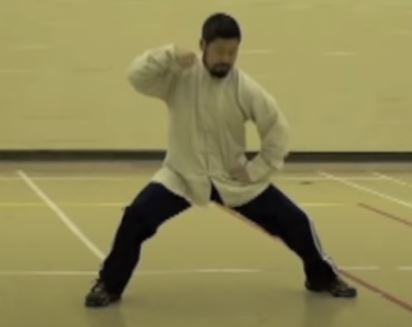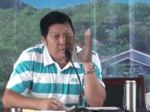Studying Chen Style Taijquan Practical Method as an anthropologist
As a trained and graduated anthropologist I am looking at the world through a different lens. Not a big deal, I do not overrate my academic knowledge to be of any benefit in general to the world. Though drawing upon my education many credits should go out to the Practical Method and not the least to its cultural Gatekeeper Master Chen Zhonghua (19th Generation International Standard Bearer), as a immensely sophisticated system of knowledge. My academic bachelor education prepared me for a learning research project to build my Masters` thesis upon. I would gather information methodologically, learn apply analytical tools, master theoretical reasoning based on facts in logical terms, excluding speculation and organising arguments thereof in historical and contemporary anthropological debates relevant to specific, relevant subjects.
Although I have chosen anthropology as my study field after high school because of my interest in human origins, diversity, variation, adaptation and diffusion, my real interest came when I was introduced to the topics, content, books, stories, videos and above all the practice of the study by meeting people “in the fields” of my studies.
There are important lessons in anthropology that I found resonating in the teachings of Chen Zhonghua. Let me give some trial in anthropological description of my experience with Chen Style Taijiquan Practical Method.
First of all behind Chen Style Taijiquan Practical Method is a set of traditional terminologies covering a grand history of a localised (“Chen Village”) Chinese family lineage (“Chen”), specifying a particular martial art development. The “Practical Method” is the branch within this Chen Style Taijiquan that is derrived from the late Grandmaster Hong Jungsheng when he was training with Chen Fake for the last period together in the early 50s of the twentieth century. Calling the individual training and application abilities of Hong Jungsheng “Very Practical” getting hereby the blessing of Chen Fake to continue to promote the practical method version of Chen Style Taijiquan. Henceforth the name Practical Method.
So what is this particular Practicality? The first time I heard about it was from my Chen Style Hunyuan Xinyi teacher James Strider. At the time in the Netherlands I learned Silk Reeling, Form 24 and Nei Gong. It changed my way of thinking about life in certain ways subtly and opened the way to find a more true martial arts approach that I lost along my amateur way. The day I heard Grandmaster J. Chen Zhonghua would come for a workshop to the Netherlands organised by Chen Liangsheng (“Kristanto” to insiders), I was full of excitement, knowing I was already too old to become a full time student with a young body ready to accept a long way of “eating sour”. I started to prepare with studying free videos on internet. I knew already that it would take a lifetime to become skillfull in this martial art like a true master. Anyway still not discouraged and against all odds I am practicing regularly to enhance my body to obtain skill. Real Skill. If I get it, that is not important to me.
So wat is that skill? The first workshop with Master Chen made clear to me that by starting Practical Method, it means that you have to adopt the way of thinking Master Chen is teaching you. Not because he wants you to. Because you need to in order to learn what he has learned. And he shows it to you and by this you become part of a tradition which makes you a culture bearer. You learn to think in a way that is fundamental to achieve the right mindset. It excludes all other prelearned approaches of martial arts other than what Master Chen tells his students.
Before I want to say something about the practicality of the martial art, let me explain something. When we encounter other people we will always have to deal with facts. They are other versions of ourselves. I mean with this that they are human, sharing universalities. In the very essence of relativism that became paramount of anthropology in the modern time, it would mean that someone from another cultere could best be understood when studied intensively in the context of their cultural domain and outside your own, over an extended period. This brings the problem of comparison. Terminologies, categories, logic, science, daily routines, language, customs and much more, are all crucial to get acquintanted with, in order to start learn to see the order in the complex web of interrelated cultural structures of ” the other”. And one of our methods to study other cultures is to compare two cultures on the basis of, for example, a topic or problem that needs explanation in order to make generalisations. Also you could gather similarities and differences in comparison with your own cultural background.
What are you learning when you make comparisons anthropologically? In the postmodern era, starting in the seventies as response to the Modernities, there was a strong tendency to refute all comparisons, because substantially there is no other knowledge than knowledge itself; which is inherently part of a people speaking particular languages and therefore hermetically distinct from people speaking other languages. Cultures were paroles or a narrative that only local people speak and needed to be studied intensively in their terms focussing on synchronological, contemporary issues. Anthropology must be mere endeavours of producing papers of this kind, needing to emphasise the relative nature of all knowing. All Western scientific additions to localities were out of arrogance and Western superiority. Critics of this brand of postmodern thought showed that this can be regarded as too subjective. There is objectivity possible in comparison, categorical projects of science and distinction between nature an culture. The grand theories of anthropology in the modern time, the enlightenment project and interdisciplinarity are not be thrown away. Not at all.
Indigenous knowledge and science
What is interesting about science, is that “it needs to be working.” The idea of producing results from accumulations of simpler workings are basic knowledge in all cultures in what you could call local versions of logic. If it works, there is logic to it. Apart from categorization to what extent something works. This is clear in Practical Method. Here the synthesis of Practical Method (PM) and anthropology and science kicks in. If I want to write about the fundamental workings of PM, I should use a personal experience that can be reproduced, so that it can be tested again and again. So that the culture bearers (the teachers, the students) can control what I say is correct. Master Chen is a teacher of a certain kind, having the ability to introduce Chinese terminology when he deems it practical to his students aligned with basic rules of scientific knowledge. This counts also for the exercises and usage of the body. He can show you the exact way of following a procedure to obtain a way of persueing the correct ideal. The correctness shows only off in the practice of the applied method and the result that springs thereof. He makes that very clear. ” Follow procedure”, he would say. I would regard all Master Chen`s teaching direct transmission of an indigenous Chinese knowledge. It produces results that can be tested again and again following the internal procedures and methods, gradually producing understanding knowledge of the concepts, principles and theory.
In the beginning phase of my learning I saw what most of us saw and will see when interested. A specific skill that comes from something that is demonstrated eloquently by Master Chen. A complete set of rules grounded in a deep structure of knowing hidden from the eye. Only the superficial will be revealed at first. You will interact with students and the teacher to get the idea of moving your body in a way that is finally and ultimately internalised to become an impossibility to be penetrated to hurt you. All other knowledge is lost to find the trail. Jump on the right train to follow the right track of learning. You can learn the very essence of an indigenous knowledge, how great is the reward of learning?! Well, be aware what comes with it to learn just a bit faster, or not to get stuck forever if you are unlucky. When Master Chen spoke, I took notice very well of some details. For example that he never spoke much or asked even questions when he was instructed by Grandmaster Hong. It is not that it is simpler for Master Chen to learn PM because he learned as a Chinese speaker from another Chinese. It is partly cultural to learn taijiquan the ” Chinese way”, no doubt. There is something scientific about the knowledge, that makes it universally understandable. This is crucial to your approach of Practical Method.
What if?
This question is incorrect. “It” cannot be tested untill the test itself is done. This question leads to nothing and is unscientific. Not only in the scientific paradigm, but also in PM. For example, if a fight is fought you can see the result; it is absolutely not interesting which fighter is the best IF this fight would be real, because I just made it up, seen? Therefore all other comparisons are not valuable than just the skill of two adverse opponents in reality. A mixed martial arts cagefight between a skilled taijiuan fighter and someone using other skills can be tested only in reality. That doesn`t mean that the imagination or power of mind can create the idea of such a collision, but it is of no avail. It is way more interesting to obtain knowledge of the skill forging process of fighters in general. There are indigenous fighting taijiquan standards that only come with skill. There are skills that come with training and practice. There are trainings and practices that come with tradition, insight, knowledge, theory and developments. Chen Style Taijiquan Practical Method can be tested in a most joyfull, healthy and martial manner from day one. As long as you follow procedures. Disciples and Master Chen instruct you how to find the separation of yin yang in your body and through repeating these underlying long tested theoretical experiments will be acquired empirically. It is all in there, you just have to learn it, by trial and error as you whish.


